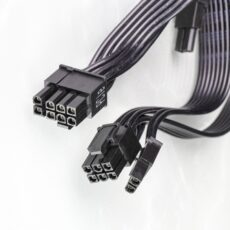 In the world of technology, innovation and customization are key factors that drive progress. Modular electronics are a prime example of this, offering versatile and customizable technology solutions that can be tailored to meet specific needs. From robotics to IoT devices, modular electronics have revolutionized the way we design and build technological systems. Let’s delve deeper into this exciting field and explore the potential of modular electronics.
In the world of technology, innovation and customization are key factors that drive progress. Modular electronics are a prime example of this, offering versatile and customizable technology solutions that can be tailored to meet specific needs. From robotics to IoT devices, modular electronics have revolutionized the way we design and build technological systems. Let’s delve deeper into this exciting field and explore the potential of modular electronics.
Understanding Modular Electronics:
Modular electronics refer to electronic components or systems that are designed to be easily interconnected and combined to create larger and more complex systems. Unlike traditional electronic systems, where components are fixed and difficult to modify, modular electronics allow for greater flexibility and adaptability. Modules can be easily added, removed, or reconfigured to meet evolving needs and requirements. This modular approach enables rapid prototyping, efficient testing, and faster development cycles.
Benefits of Modular Electronics:
One of the primary benefits of modular electronics is the ability to create customized solutions tailored to specific applications. Whether it’s building a robotics platform, designing a smart home system, or developing a wearable device, modular electronics provide the necessary flexibility to construct unique solutions. Instead of starting from scratch or relying on pre-built solutions that may not fully meet requirements, modules can be selected and integrated to achieve the desired functionality.
Another advantage of modular electronics is the ease of maintenance and repair. With traditional electronic systems, a failure in one component often requires extensive troubleshooting and replacement of the entire system. With modular electronics, faulty modules can be easily identified and replaced, minimizing downtime and reducing repair costs. This modularity makes maintenance and upgrades more efficient, ultimately extending the lifespan of the technology.
Exploring Applications:
The versatility of modular electronics opens up endless possibilities across various industries. Let’s explore a few applications where modular electronics have made a significant impact:
1. Robotics: Modular electronics play a crucial role in the development of robotic systems. By selecting and combining specific modules, engineers can easily create robotic platforms with the desired capabilities. Modules for motor control, sensing, and communication can be seamlessly integrated, enabling the construction of robots for specific tasks or environments.
2. Internet of Things (IoT): IoT devices rely on modular electronics for seamless connectivity and interoperability. Through modular components such as sensors, communication modules, and microcontrollers, developers can build IoT solutions that meet specific data collection and communication requirements. This modular approach also allows for scalability, enabling the integration of additional modules as the IoT network expands.
3. Education and DIY Projects: Modular electronics have become popular in educational settings and among DIY enthusiasts. Educational kits and platforms provide beginners with a hands-on approach to understanding electronics and programming. Modules can be easily interconnected and programmed to create various projects, fostering creativity and problem-solving skills.
4. Medical and Healthcare: In the medical field, modular electronics offer opportunities for personalized and patient-specific solutions. For example, wearable health monitoring devices can be customized by combining different sensor modules to monitor specific vital signs or conditions. This versatility supports advances in remote patient monitoring and telemedicine.
The Future of Modular Electronics:
As technology continues to evolve, the future of modular electronics looks promising. Advancements in miniaturization, higher integration capabilities, and improved compatibility between modules will further expand the potential applications of modular electronics. The ability to quickly and easily swap out modules will enhance device customization, ultimately leading to more tailored and efficient technology solutions.
Additionally, as more companies embrace modular design principles, we can expect an increase in the availability and variety of modular electronic components. This will allow for greater modularity across different technology sectors, enabling seamless integration and collaboration between systems.
Summary:
Modular electronics have revolutionized the way we design and build technology solutions. With their versatility and customization capabilities, they offer a flexible approach to creating innovative and tailored devices. From robotics to IoT and beyond, modular electronics are shaping the future of technology by enabling rapid prototyping, efficient testing, and easy maintenance and repair. As the field continues to advance, we can look forward to more groundbreaking applications and the continued evolution of technology made possible through modular electronics.
Got Questions About Modular Electronics? Let Us Help!
Hydraulic Power Sales, Inc. is local manufacture, distributor, and service provider of hydraulics equipment based in Cordova, California. Since 1985, we have been providing hydraulic repair services, hose assemblies, and sales to businesses throughout northern California. We manufacture hydraulic engine systems and hydraulic cylinders while supplying other hydraulic equipment. We want to be your one source for all of your hydraulic/pneumatic needs. Give us a call today!

